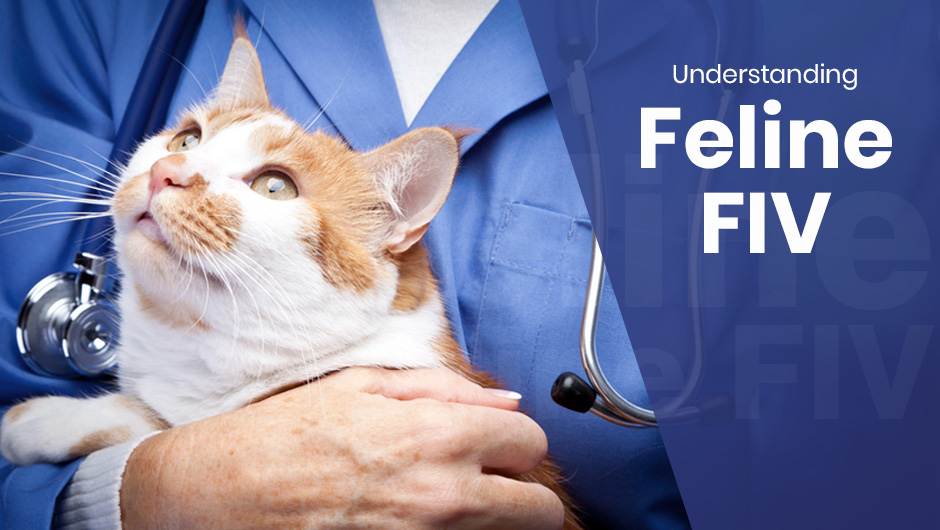Cat owners are often confused about the difference between feline FIV and feline FeLV and what a diagnosis means for their pet. Feline FIV, which stands for feline immunodeficiency virus, is the equivalent of the AIDS virus in humans. Feline FeLV, on the other hand, is a leukemia virus. Approximately two to four percent of cats in the United States has one of these viruses. Both are retroviruses and can be fatal. That means a cat can live with the virus for many years before becoming seriously ill.
Feline FIV First Identified in 1986
Although the disease has existed for decades, veterinarians first labeled it as Feline FIV a mere 30 years ago. It depletes infected cats of white blood cells, which in turn makes it more difficult for them to fight off infections. Since it is such a slow-acting virus, most cats enjoy a normal lifespan. The reason cat owners tend to panic at the diagnosis is its association with AIDS in humans. However, cats with FIV rarely develop the severity of symptoms that people with the AIDS virus do since they already have a shorter lifespan. Additionally, the strain of each virus differs considerably.
Transmission and Symptoms of Feline FIV
A cat infected with FIV has the virus in his blood, saliva, or both. Biting is the main method of transmission from one cat to another. Outdoor cats who get into fights with other cats are most at risk of becoming infected. The incidence of infection is highest in feral cats and male cats who have not been neutered. If your male cat does go outside, make sure that he is neutered to prevent wandering behavior and fighting. Fortunately, the HIV virus cannot survive long outside of a cat's body and it cannot be transmitted to humans. It also cannot be transmitted indirectly, such as through contact with food bowls and bedding.
Some cats with FIV remain asymptomatic throughout their life span. Those who do become ill may display some or all of these symptoms:
"¢ Poor appetite and/or weight loss
"¢ Disheveled fur
"¢ Diarrhea
"¢ Fever
"¢ Inflammation of the gums and mouth
"¢ Hair loss
"¢ Non-healing wounds
"¢ Behavior change
"¢ Frequent urination and straining to urinate
"¢ Discharge from the nose or eyes
Please contact Minnesota Veterinary Hospital to schedule an evaluation for your cat if you notice any of these symptoms. We will conduct a blood test to determine the presence of the virus and notify you when the results come back from our laboratory. Your cat's regular veterinarian will then develop a treatment plan to address her individual symptoms.
Photo Credit: Bill Oxford / Getty Images

